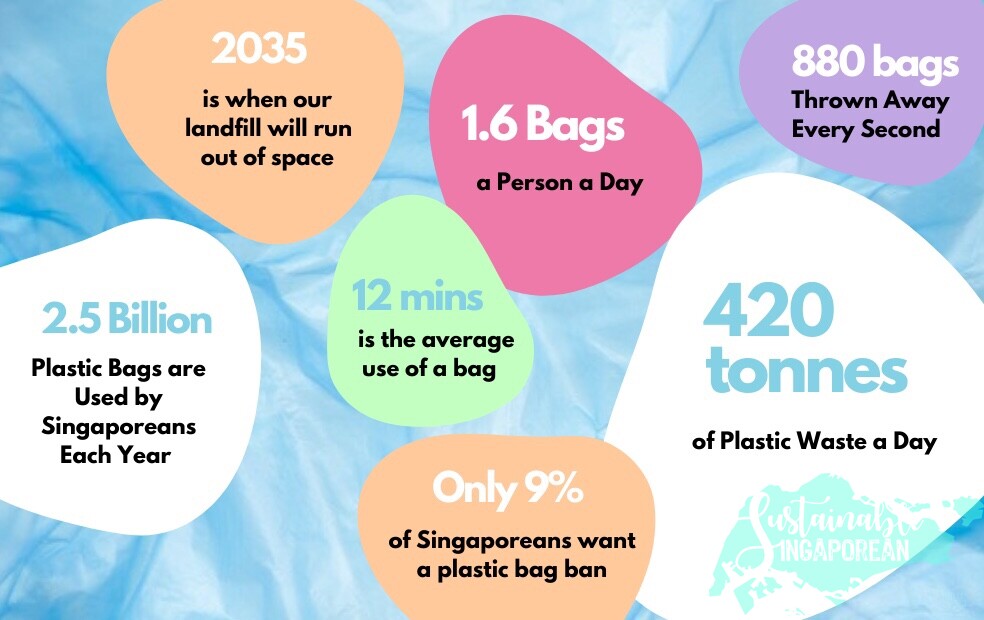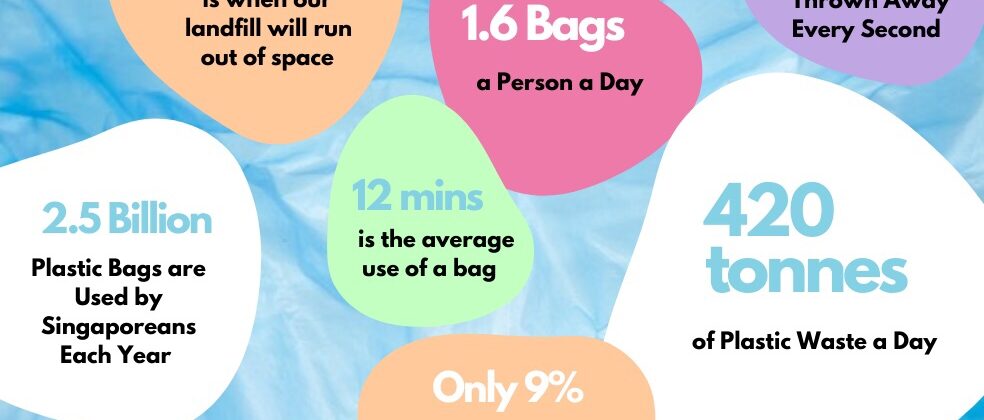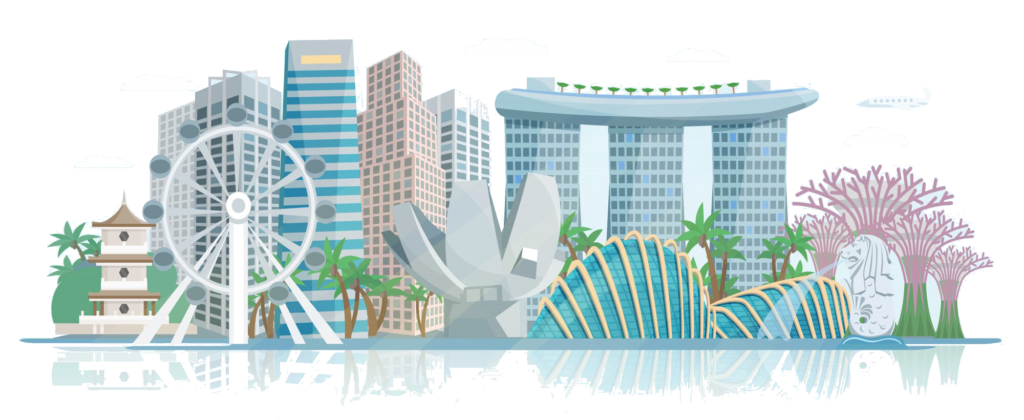
The age-old plastic bag debate has resurfaced in Singapore again. On April 10 2021, Senior Minister of State for Sustainability and the Environment Amy Khor said she is working on a charging model for disposable carrier bags at supermarkets to cut the consumption of disposables. We all know that this debate isn’t new. We have tried and failed many times at implementing plastic bag bans which was quickly redacted as soon as they received angry feedback from Singaporeans.
To be honest, the Sustainable Singaporean in me was immediately frustrated at the other Singaporeans’ love affair with plastic bags. I thought: “Just ban lah! Ban all of it. I have my trusty reusable bag.” But it isn’t as simple as that so let’s weigh the pros and cons of the quintessential plastic bag.
Pros of Plastic Bags
So, why are plastic bags so indispensable to Singaporeans?
- Binning trash: Just talk about banning bags and Singaporeans will immediately raise the issue of binning their trash. “Where the heck would I throw my rubbish?” Many would lament. “It is so unhygienic to dump your trash straight into the chute…”
- Lightweight, strong and waterproof: Singapore’s weather is tropical and when it isn’t pouring with rain one minute and hot and sunny the next, the humidity levels are off the scale. The common alternative like paper bags are less sturdy but not waterproof. Reusable bags are a little better but they can be quite heavy to carry around.
- It is cheap.
I couldn’t agree more. I do need plastic bags to consolidate my trash for the rubbish chute that is outside along the corridor and to sort out the recyclables. I also need bags to store certain food when I go grocery shopping even though I already bring a reusable bag.
The Stats are Not Pretty
So let’s put it in pretty numbers for you.

It takes 37 million kg of crude oil and 12 million kg of natural gas to produce three billion plastic bags – the amount the Republic was already consuming in a year by 2011. (Source)
When you see statistics and data like this, I wonder if you feel that there is a lot of waste and excess in our society and yet there is not much willingness in making change.
Plastic is Not Just Bad for the Environment, it is also Bad for Our Body
Plastic is hard to recycle and ubiquitous in garbage, is made from fossil fuel derivatives.
Sure, Singapore incinerates most of our trash but that emits carbon dioxide when burned, accounting for a substantial chunk of global warming and causing ground-level ozone. I will go in-depth about global warming in future posts but, needless to say, it affects all of our lives from our weather to living to livestock and farming.
This ash from burning our trash is then is buried on Pulau Semakau, our beautiful landfill, but as some of this ash will contain high concentrations of toxic substances such as dioxins and heavy metals, it will create a major pollution problem when it eventually wash into the sea and into in our seafood, and waters.
Plastic Bag is An Addiction and We Need Solutions
I know many think that plastic bags are a necessity or even a right, but if we are being honest with ourselves, there is no denying it has become somewhat of an addiction because we are using and even hoarding much more bags than we need.
Singaporeans use twice as many bags as our Malaysian counterparts!
Addiction /əˈdɪkʃ(ə)n/
noun: addiction; plural noun: addictions the fact or condition of being addicted to a particular substance or activity.
It may sound harsh to call it addiction, but think about it, just debating the plastic bag issue brings rage and fear into our hearts. Addicts don’t think rationally about the substance they are addicted to, even if it kills them in the long run. If we weren’t addicted to it, then why are we so afraid of imposing restrictions on it?
It’s Time for Intervention
As with all addictions, it is time for some intervention. The main thing here is reducing our reliance on plastic bags but not eliminate it completely because doing that would be impractical. It is like being addicted to coffee when you know it gives you headaches or jitters and now we have to find ways to reduce the consumption. How can we do that with plastic bags?
The first step is acknowledging you have a problem and coming to terms with it. When we recognise that we have a problem, then we will be no longer numb or ignorant to the facts and change our way of thinking.
So, Charging for Plastic Bags, Is It Right?
I think the government isn’t really at fault here, we will only have ourselves to blame. The government had “nicely asked” us to use reusable bags and conserve our limited resources but we choose to ignore it again and again. It seems like imposing a fine always works and gets the message across because we are all rather stubborn so I am actually for it, however, with caveats.
I believe we should only start charging for the second bag onwards,
the first bag should be free. And importantly, this should be implemented across the country in all shops, supermarkets and restaurants.
It is actually a very logical move behind this. In order to have sustainable change, it has to be gradual and not sudden otherwise we will easily relapse back into our old habits. In order to remove the addiction, the sense of awareness should be coupled with gradual, sustainable habitual changes and that would take time.
Meanwhile…
We will still need to think about reducing our reliance on plastic bags so here are some simple sustainable ways:
- Always bring a reusable bag. They don’t take up much space in your bag and are more useful because they are stronger and can carry heavier items.
- When you do take a Plastic bag, make sure it is full and you really need it. Please don’t take a bag for that small pack of candy that can fit into your pocket or bag.
- If your plastic bag has a small hole (yes it always happens), don’t throw it away! You can use it to bag recyclable trash or dry items.
- Make sure it is always packed full of trash before throwing it down the chute.
- Don’t take more bags than you need!
I want to remind everyone that little things will add up and just taking one less bag and throwing away one less bag a day means a ton less plastic bag waste in a year for everyone!




Leave a Reply